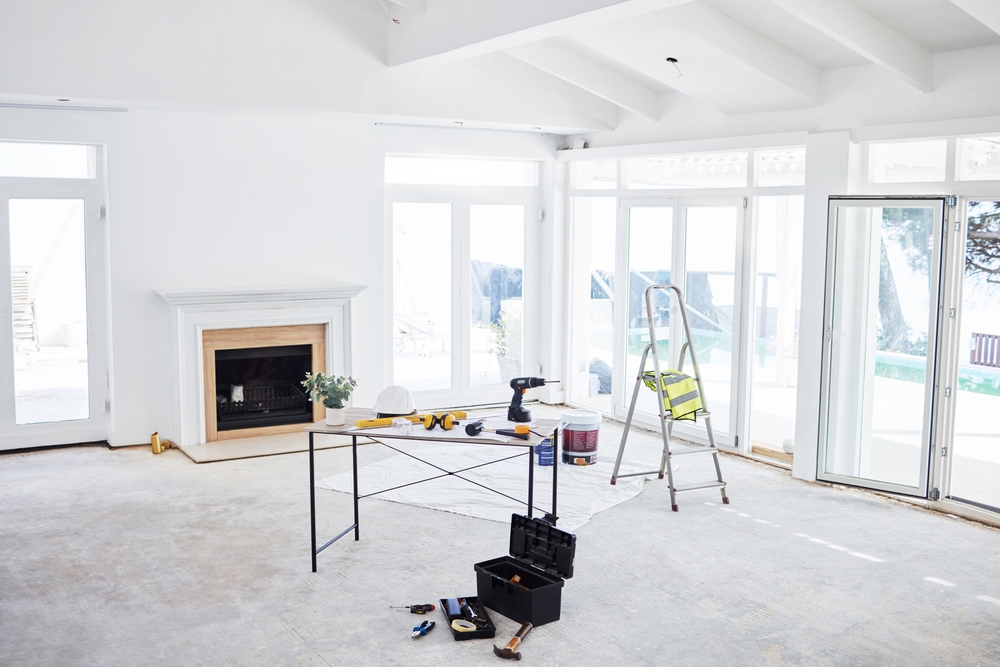
Homeowners who want to renovate their property should assess the risks of performing work without obtaining the necessary permits. The practice of bypassing permits during renovation work appears to save time and money but results in costly problems. Building codes at the local level serve multiple purposes, including maintaining safety standards, protecting property values, and preventing legal issues. The costs of non-compliance with regulations will exceed the amount you paid for the permit. The following section examines 14 potential disasters that can occur when homeowners undertake renovations without obtaining proper permits.
1. Failed Home Inspections
If you renovate without a permit, your home might not pass future inspections. This can happen when you sell or refinance. Inspectors will spot unpermitted work, leading to delays, fines, or even demands to tear out the changes. The cost and hassle of fixing these issues can be significant.
2. Voided Homeowners Insurance
Insurance companies expect you to follow building codes. If you file a claim related to unpermitted work, your insurer might deny it. This could leave you paying out of pocket for repairs after a fire, flood, or accident. Renovating without a permit can put your financial safety net at risk.
3. Steep Fines and Penalties
When the city discovers that you skipped a permit, you may face fines. These penalties often cost more than the original permit. Some municipalities charge double or triple fees as punishment for illegal work. In extreme cases, legal action can follow, adding to your stress and expense.
4. Forced Removal of Improvements
Imagine building your dream addition, only to be told you must tear it down. Cities can require you to remove any changes made without a permit. The demolition and restoration costs can be crushing. All your hard work could vanish, along with your investment.
5. Difficulty Selling Your Home
Unpermitted renovations make selling tricky. Buyers often want assurance that everything is up to code. If they learn you renovated without a permit, they might walk away or demand a lower price. Some lenders won’t approve mortgages on homes with unpermitted work.
6. Reduced Home Value
Your home’s value depends on its legal status. Renovations without permits don’t count toward official square footage or features. Appraisers may ignore these improvements, meaning you won’t get credit for them when you sell or refinance.
7. Unsafe Living Conditions
Permits ensure renovations meet safety standards. Without oversight, mistakes can go unnoticed, such as faulty wiring, poor plumbing, or unstable structures. This puts your family at risk. Renovating without a permit can lead to dangerous living conditions.
8. Problems With Future Renovations
In the future, you may want to take on more responsibilities. If inspectors find unpermitted changes, they may halt your new project until you resolve old issues. This can delay your plans and add unexpected costs.
9. Complications With Neighbors
Neighbors sometimes report work they suspect is unpermitted, especially if it affects them. Renovating without a permit can spark disputes, complaints, or even lawsuits. Good fences may make good neighbors—but so do proper permits.
10. Tax Assessment Surprises
Unpermitted improvements can still catch the eye of tax assessors. If they discover your upgrades, your property taxes may rise unexpectedly. However, you may not fully realize the value of the renovation if it’s not officially recognized.
11. Legal Liability for Injuries
If someone gets hurt because of faulty work, you could be sued. Without a permit, it’s harder to prove the work was done safely. Renovating without a permit increases your legal risk if an accident happens on your property.
12. Poor Workmanship and Lack of Oversight
Permits require inspections at key stages. Skipping them often results in lower-quality work, especially when hiring unlicensed contractors. Mistakes may not become apparent until years later, resulting in costly repairs.
13. Difficulty Getting Future Permits
Once you’re caught renovating without a permit, the city may scrutinize you more closely. Obtaining approval for future projects may become more challenging, time-consuming, or costly.
14. Problems With Insurance Claims When Selling
Even after you sell, if problems arise from your unpermitted work, the buyer’s insurance company may pursue you legally. This can lead to ongoing legal and financial headaches long after you thought the project was complete.
How to Avoid the Pitfalls of Renovating Without a Permit
The urge to begin a project or save money on costs might lead people to start renovations without obtaining proper permits. The dangers of unauthorized renovation work create major threats to your financial stability, personal safety, and mental comfort. Always verify with your local building department before beginning any modifications to your property. Most urban areas provide accessible resources and hotline services that enable residents to identify which construction work needs official authorization.
You can find the necessary information about permit requirements through your city website or by contacting a reliable source. Your contractor should obtain all required permits for your project when you work with them.
Have you encountered any issues during your renovation project? Please share your renovation experiences through the comment section.
What to Read Next…
- Why Are So Many DIY Projects Actually Illegal In Your County?
- 9 Renovation Grants That Can Backfire On Your Estate
- 5 Home Investment Plans That Legal Experts Say To Avoid
- 10 Items That Could Void Your Homeowners Insurance Instantly
- 5 Emergency Repairs That Could Force You Into Debt Overnight
The post 14 Costly Disasters That Happen When You Renovate Without a Permit appeared first on The Free Financial Advisor.







